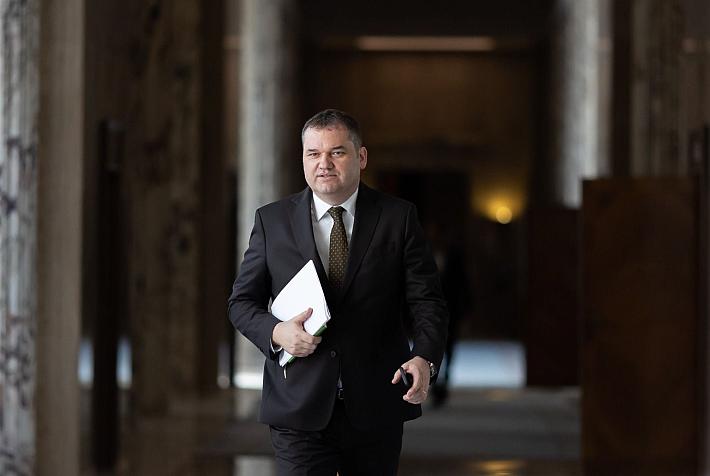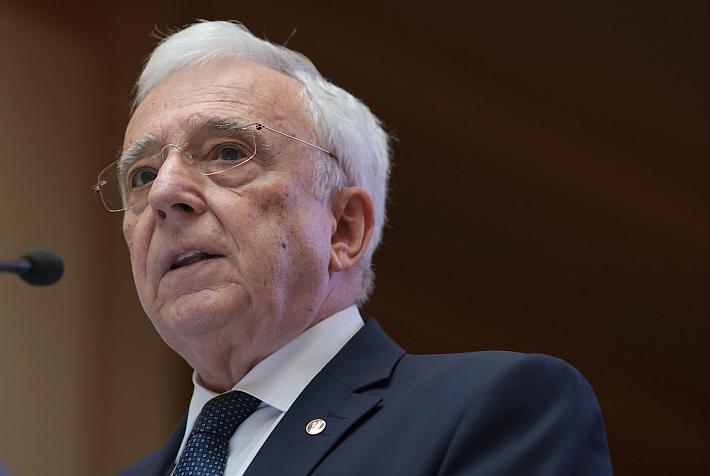Romania’s Parliament discusses the conversion of foreign currency loans

After producing the giving in payment law, which allows debtors to give the mortgaged assets to banks to get out of loans, the Parliament is now analyzing a new law that may have big repercussions on the local banking system: the conversion of foreign currency loans into local currency RON.
The budget and judicial committees within the Chamber of Deputies discusses several foreign currency loan conversion alternatives on Tuesday, October 4, and may reach a final draft on Monday, October 10.
The committees analyzed three proposals: the conversion of loans in Swiss Francs (CHF) into RON at the exchange rate from the moment the loans were granted, the conversion of all loans in foreign currency (CHF, EUR, USD, others) in RON at the historical exchange rate + 20%, and a proposal from the Finance Ministry to grant public guarantees to banks in exchange for a discount on the foreign currency loan balance, according to liberal deputy Andreea Paul quoted by local Agerpres.
The two biggest political parties in the parliament, the Social Democratic Party (PSD) and the National Liberal Party (PNL) seem to be on the same page on this initiative and support the conversion of loans in Swiss Francs (CHF), according to statements from their representatives.
“The conversion at the historical exchange rate should be a reparatory measure for those who took loans in Swiss Francs and a way to sanction banks that sold deceiving products,” said Daniel Zamfir, the liberal deputy who also promoted the giving in payment law, which was strongly opposed by local banks.
PSD leader Liviu Dragnea also seems to support this proposal: “We go forward with the version that make things right for the people who have been deceived by the banking system. If the historical exchange rate is the alternative that eliminates this injustice, then we go with it. The talks only focus on the Swiss Franc loans,” Dragnea said, according to local Profit.ro.
Most loans denominated in Swiss Francs were granted between 2006 and 2008, when the CHF/RON exchange rate was about half what it is today. Thus, the Romanians who took CHF loans in that period now pay twice as much on their monthly installments as they paid in the beginning.
The local bankers have warned that a loan conversion law would create a “tsunami” in the local banking system, as it would lead to big losses for banks and pressures on the foreign exchange market. The loans in CHF granted by local banks to individuals totaled some RON 4.7 billion, or little over EUR 1 billion (at the current exchange rate), at the end of August this year. Their conversion in RON at the historic cost would lead to RON 2.4 billion – EUR 540 million losses for local banks, according to the central bank’s estimates.
This is why, Romania’s National Bank (BNR) has asked the MPs to consider introducing several conditions for the loan conversion such as having it applied only for one loan per individual and only for loans under a certain value, according to the local media.
According to BNR representatives, the number of loans in Swiss Francs has dropped from 70,000 two years ago to 50,000 as some local banks have negotiated with their clients either loan conversions or restructuring.
Meanwhile, some say that the conversion of loans in CHF into RON at the historical exchange rates would be a discriminatory measure, as those who have loans in euro have also been affected by the exchange rate increase. The EUR/RON exchange rate is currently about 30% higher than in 2007.
However, the conversion of all foreign currency loans into loans in local currency would be a nightmare scenario for local banks, as the total balance of loans in EUR granted to individuals was RON 42.6 billion (EUR 9.6 billion) at the end of August, according to Profit.ro.
Romania’s Parliament adopts the controversial “giving in payment law”
About 4,000 Romanians use the giving in payment law
editor@romania-insider.com











